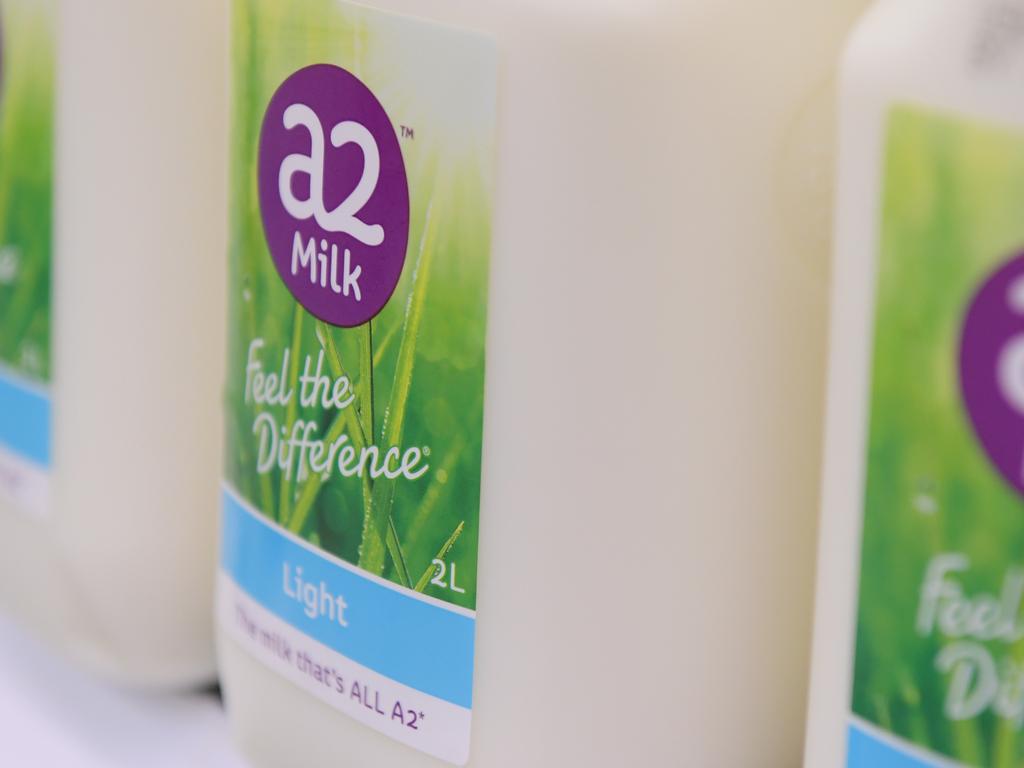Beijing’s Aussie beef ban is at ‘China’s expense’, says AACo’s Hugh Killen
Beef sales to China have halved for Australian Agricultural Company, but chief executive Hugh Killen said it will be to Beijing’s detriment.

Beef sales to China have halved for Australian Agricultural Company, but chief executive Hugh Killen said it will be to Beijing’s detriment as he sends his prime cuts elsewhere at high prices.
One of the two abattoirs AACo uses to export beef to China was hit with a suspension in May, and seven months on the ban remains in place with no signs it will be lifted soon.
AACo’s share of total meat sales to China slipped from 15 per cent to 8 per cent in the six months to September 30, and Mr Killen said while he hoped the company could regain access to the Asian powerhouse soon, it has successfully been able to divert product to other markets.
He said those markets, which include the US and Canada, were paying high prices for AACo’s product and the diverting of “high value loin cuts” was at “China’s expense”.
“China is a high value market. For Australian exporters, having access to China is highly desirable and we’d like to have access back,” Mr Killen said.
“One of the strengths that AACo has is we have that broad group of geographies that we go to, so that can help us deal with issues — such as the China issue right now. That fact that we have still got 8 per cent there is good and, to be honest with you, because we have got other markets paying well, we have made a decision to redirect to those out of China over and above what we could send there.
“Our high value loin cuts, we have really good destinations for those at the moment that are paying very high pricing for those and that’s actually at China’s expense because virtually we are taking that away from China and putting it elsewhere.”
Tensions between Beijing and Canberra flared this week when Scott Morrison visited Japan on his first overseas trip since the pandemic struck, to sign a defence pact to underpin security in the Indo-Pacific region.
Beijing’s leading propaganda outlet, The Global Times, blasted the deal and accused Australia and Japan of being “tools” for the US and warned Canberra and Tokyo they would pay the price. Meanwhile, Nine newspapers reported that a Chinese official said: “If you make China the enemy, China will be the enemy.”
This week, chairman of The A2 Milk Company, David Hearn, called for a return to diplomacy and less public grandstanding to solve the dispute, saying the Morrison government had effectively “punched China in the face”. Elders chief executive Mark Allison has also called for a de-escalation of tensions.
“The China-Australia relationship from a trade perspective is exceedingly complex at the moment,” Mr Killen said when asked about the status of the banned abattoir in Queensland.
“We would like it to be solved. ‘When’ it gets solved, you might know better than me, I can only speculate.
“China is a good market. We’d prefer it to be open. But we are fortunate enough we have some other avenues with quite a large global supply chain, which many Australian producers don’t.”
Beef sales to North America surged from 6 per cent of AACo’s total sales to 20 per cent during the first half. AACo wagyu steak, under the Westholme brand, sells for as high as $US599 for a pack of eight from US retailer Goldbelly.
Overall, meat sales declined 2.7 per cent to $102.9m during the half-year to September 30. This compared with meat production declining 9 per cent.
The company slashed its statutory loss to $1.7m from $14.1m a year earlier, representing a turnaround of 87.9 per cent.
It generated an operating profit of $23.5m, which Mr Killen said was supported by higher prices per kilogram in meat sales and the company stripping out $22m in “controllable costs”.
The company also qualified for $6.7m in JobKeeper payments during the period.
Mr Killen said while the restaurant industry had begun to return to life, the market remained volatile.
“Many restaurants remain closed or are having to adapt to reduced volumes and it will likely be some time before we see the food service return to normal,” he said.
“Supply constraints that exist across the Australian herd as a result of natural disasters, including the drought, will also be felt by AACo.
“MLA (Meat & Livestock Australia) has forecast the national cattle slaughter to decline 17 per cent in 2020 with further decreases in 2021.”
AACo will not pay a dividend for the period.






To join the conversation, please log in. Don't have an account? Register
Join the conversation, you are commenting as Logout